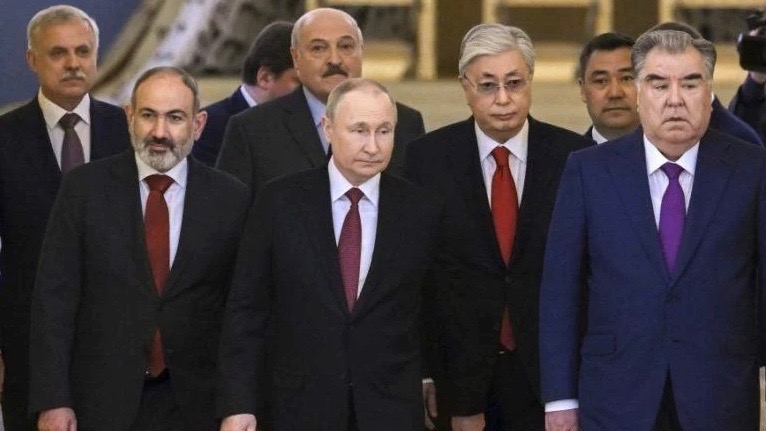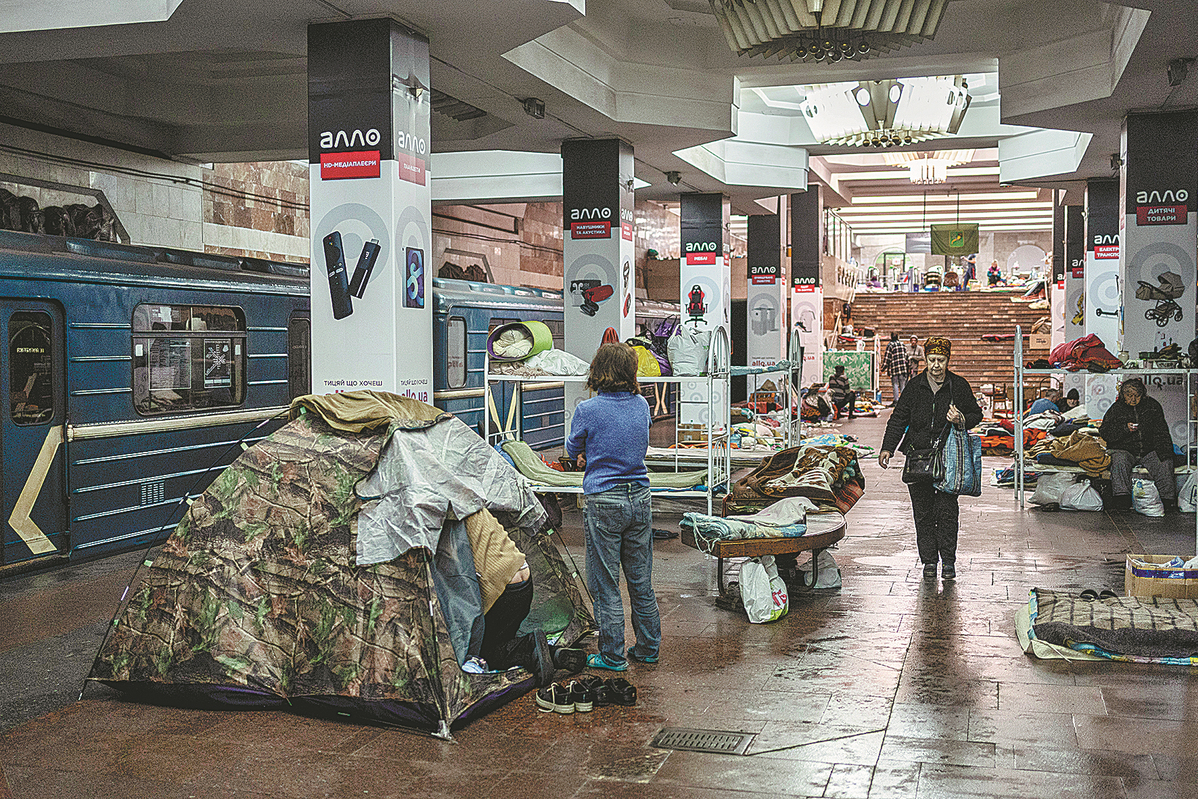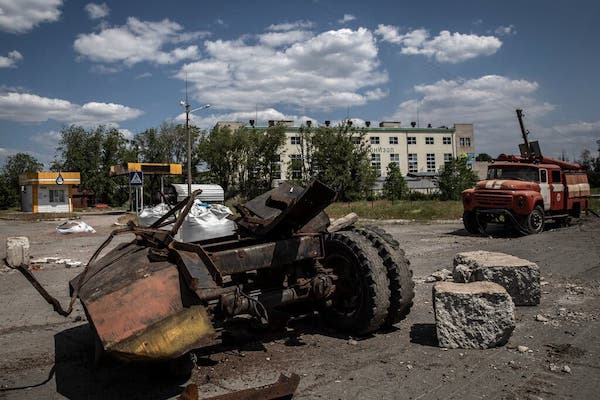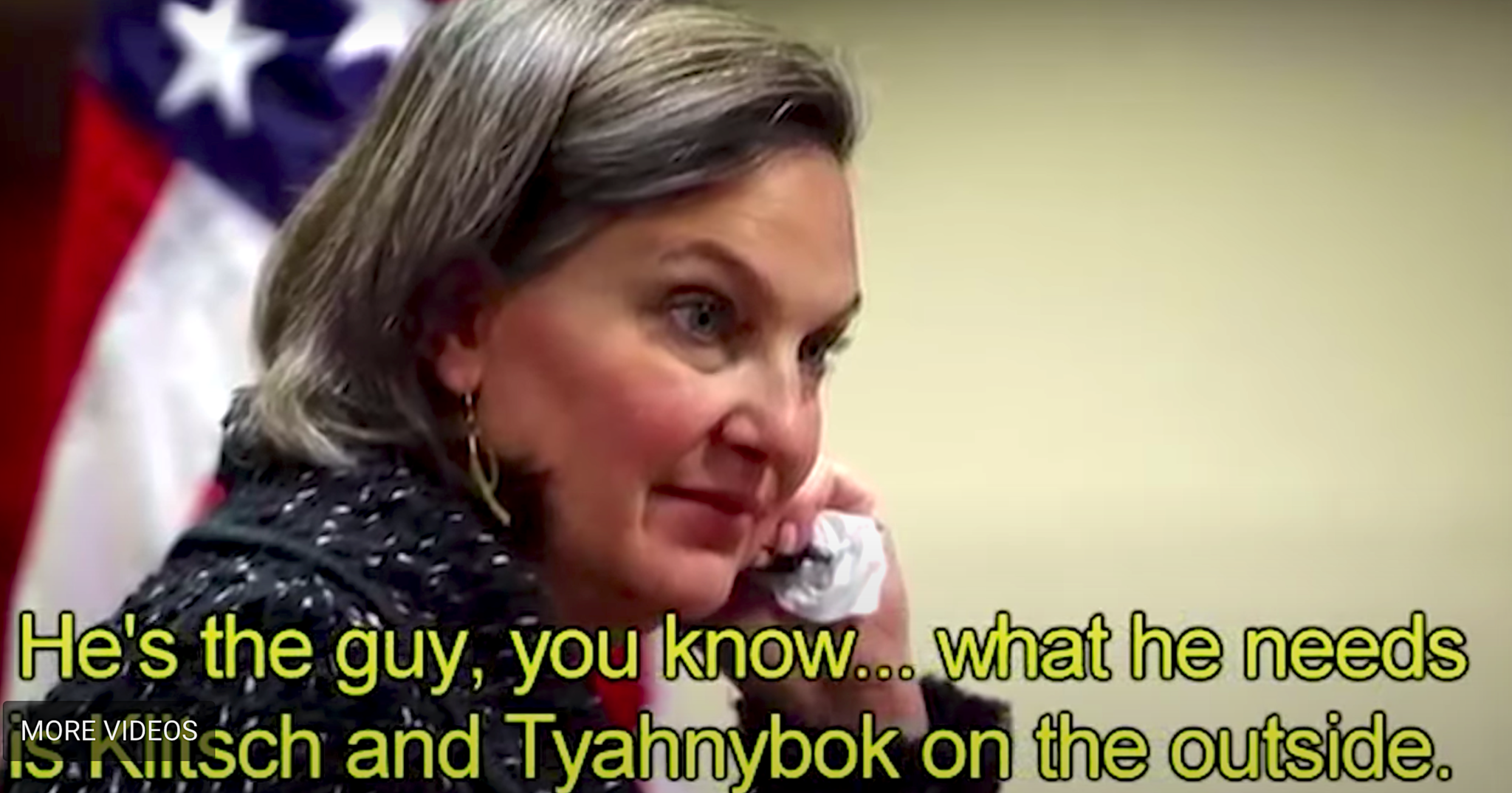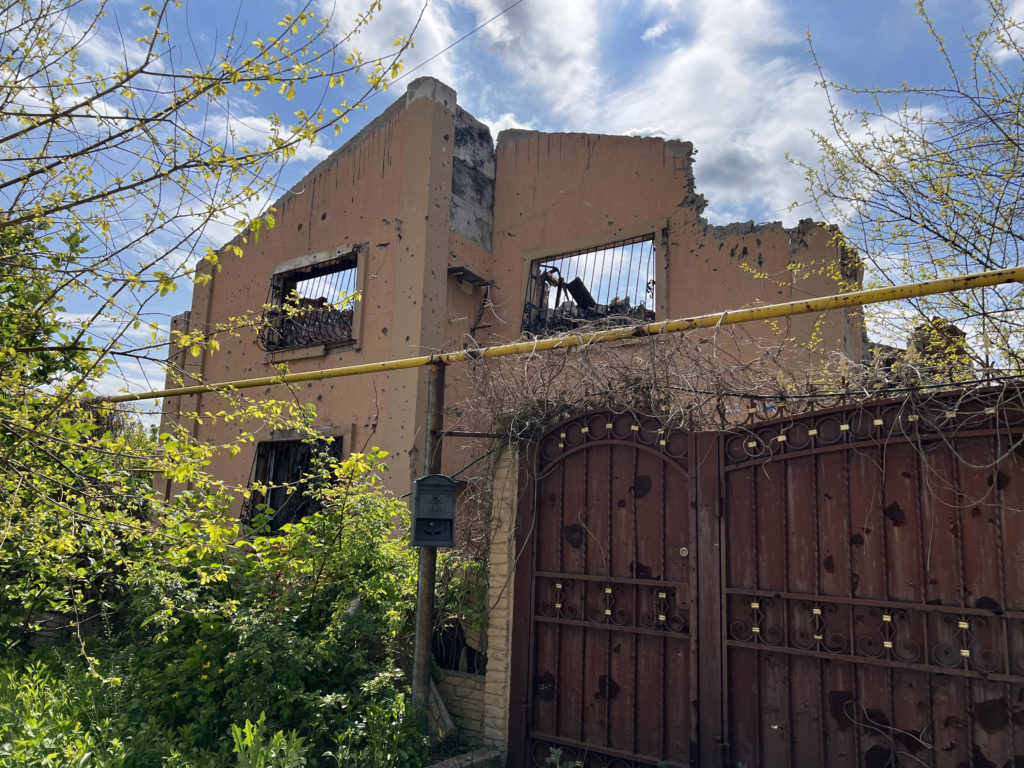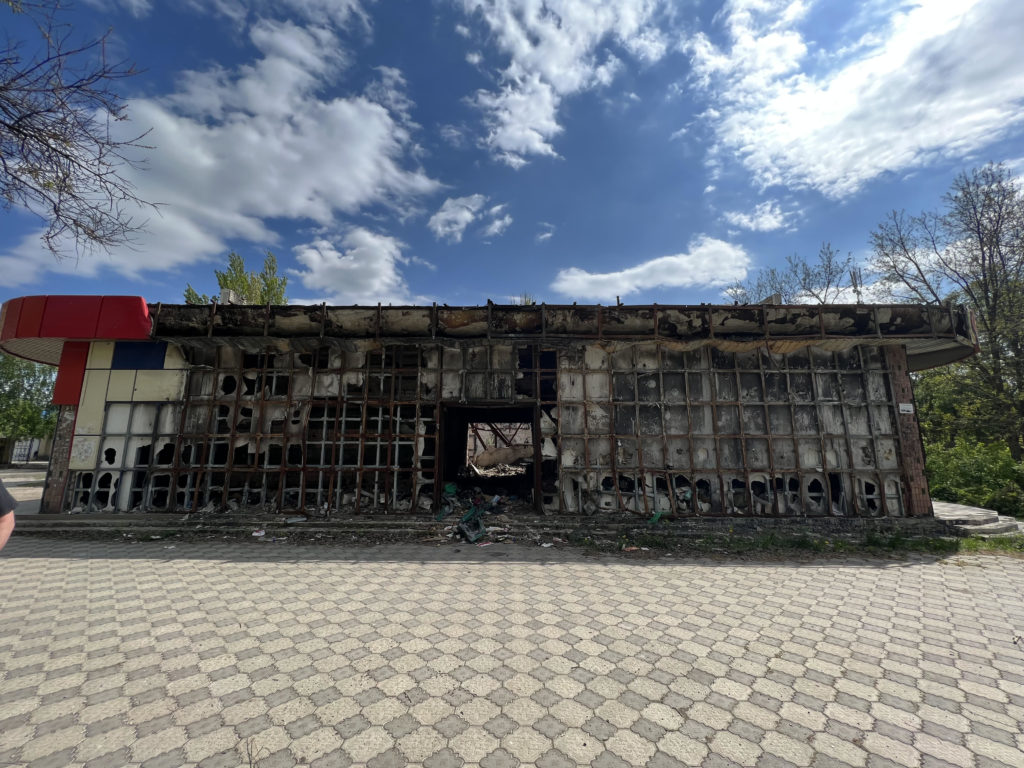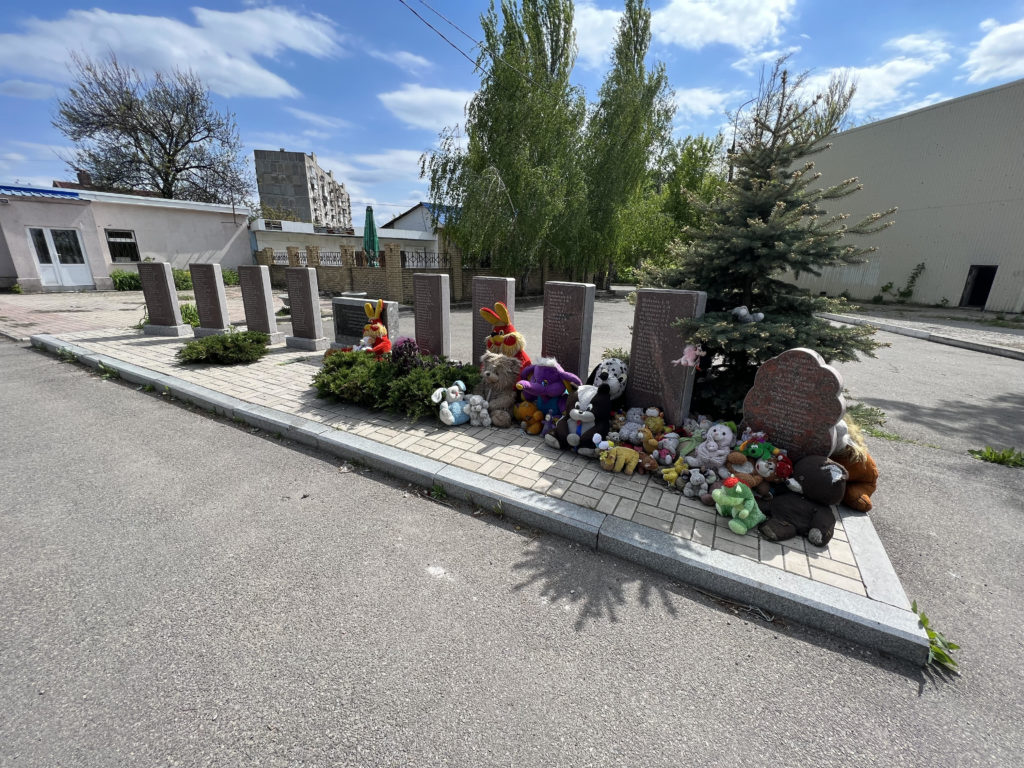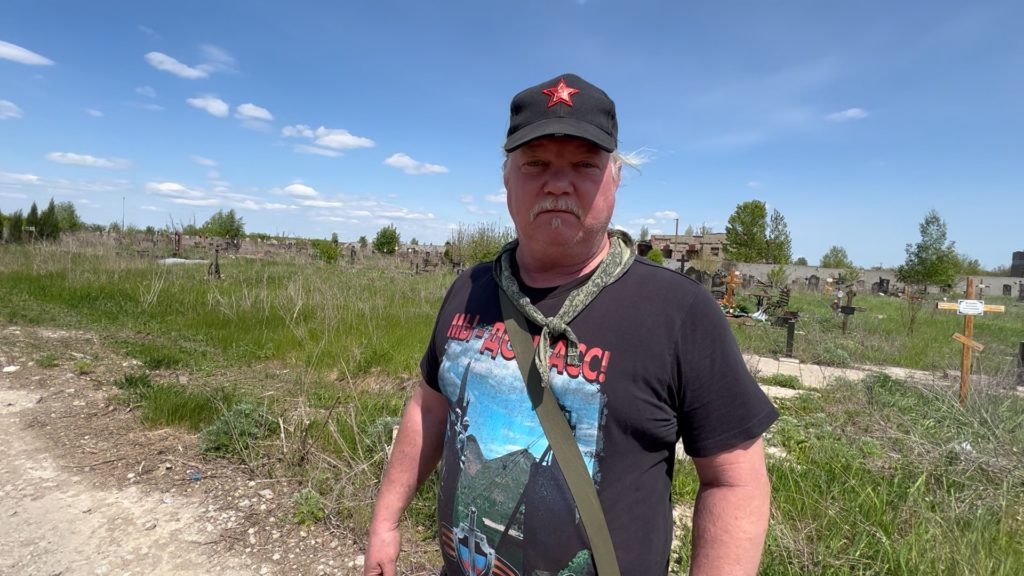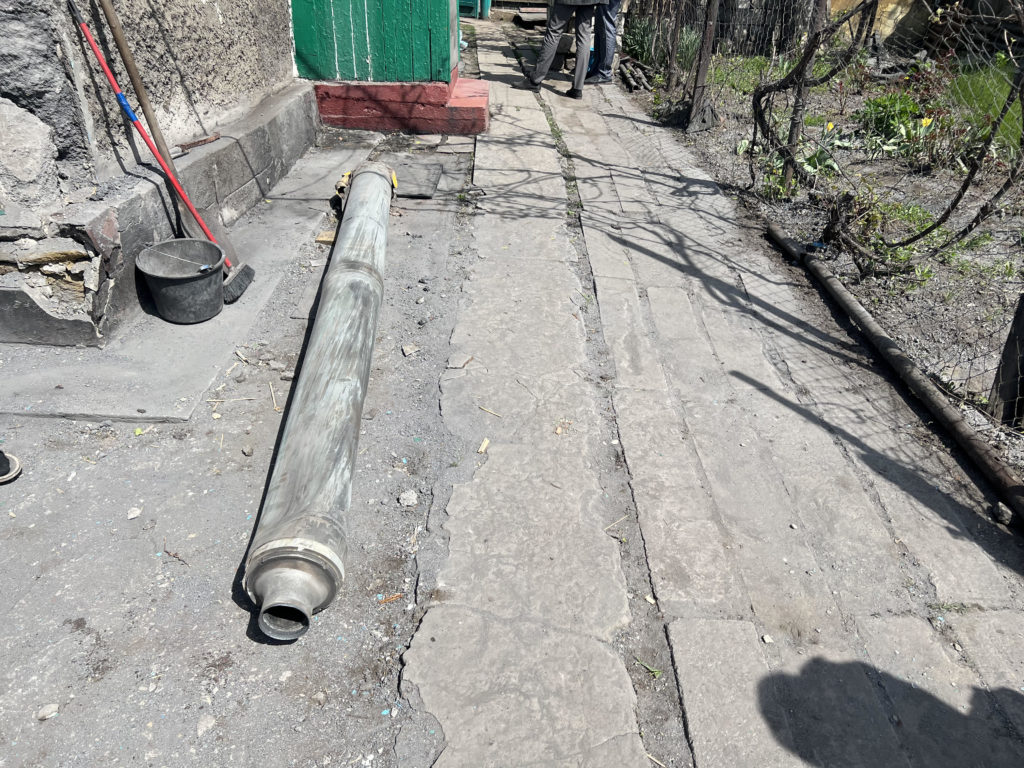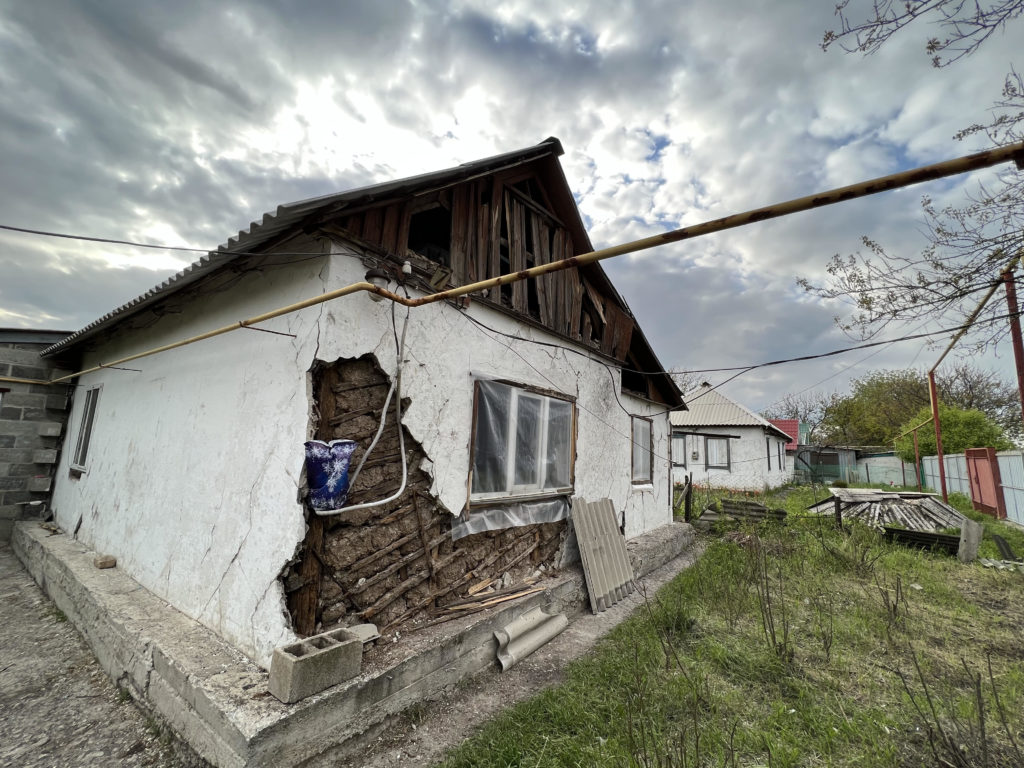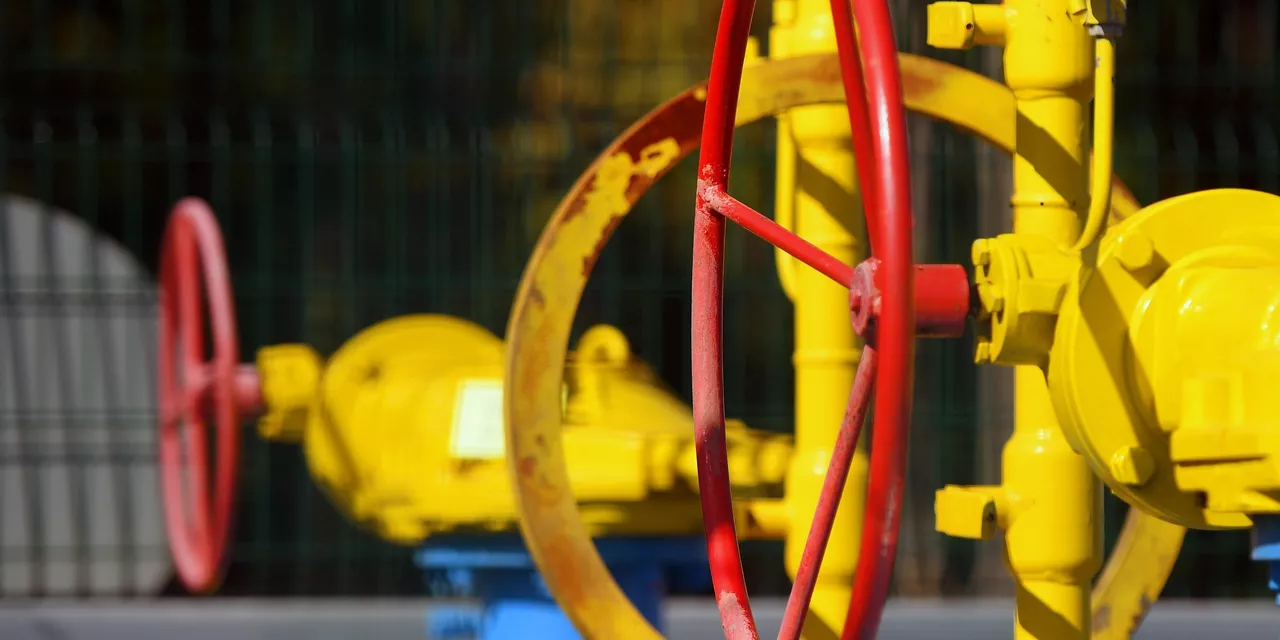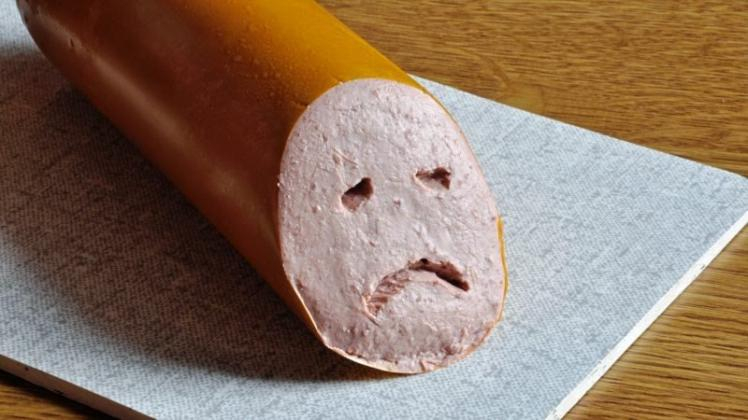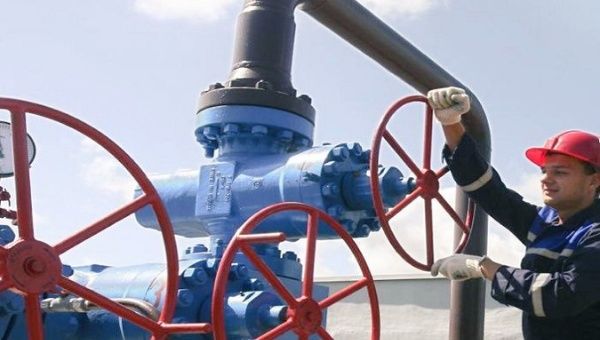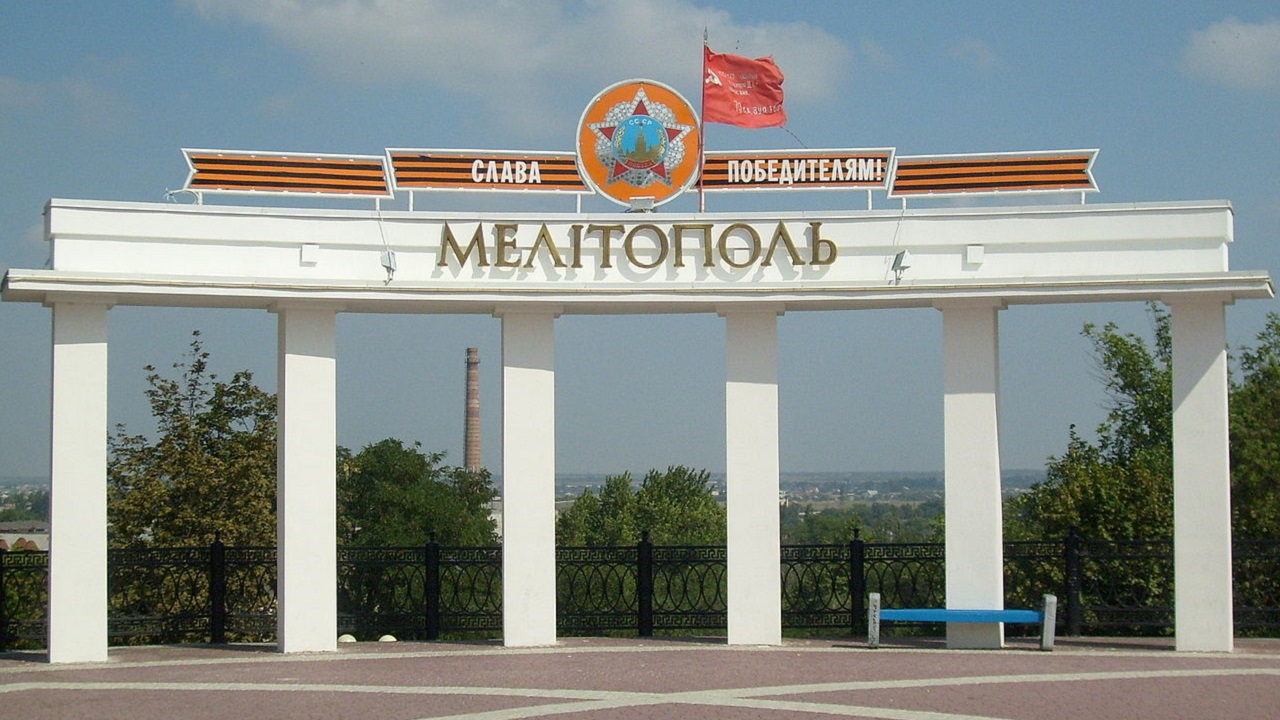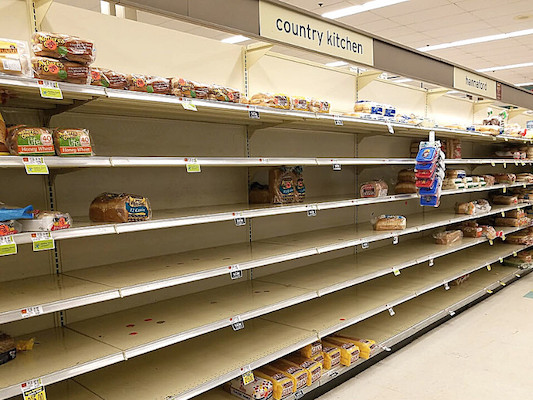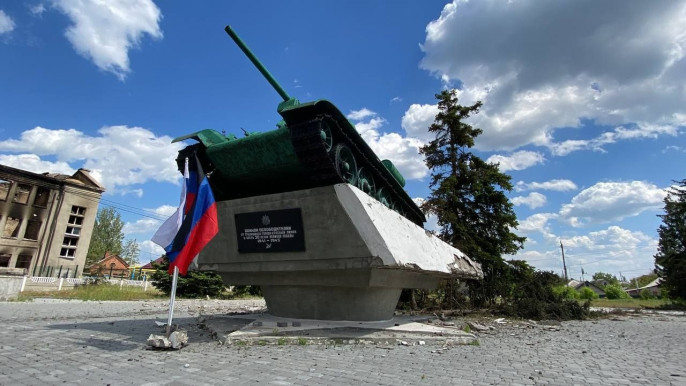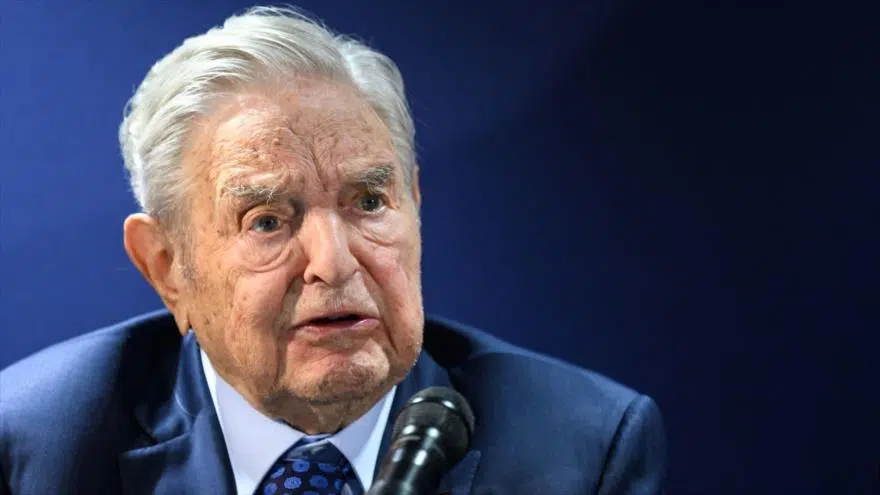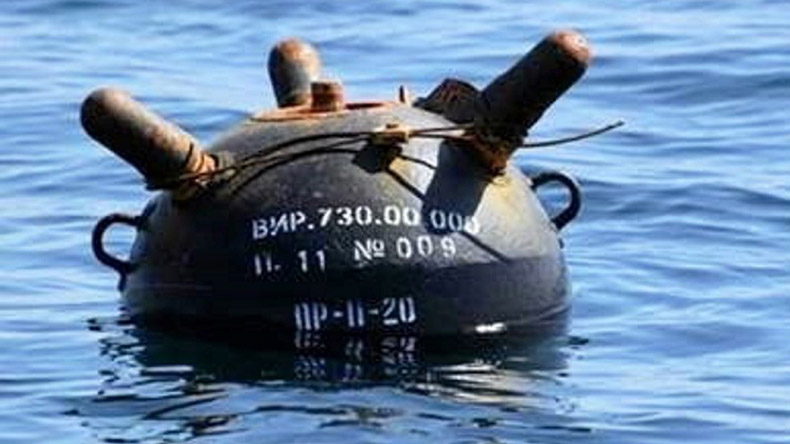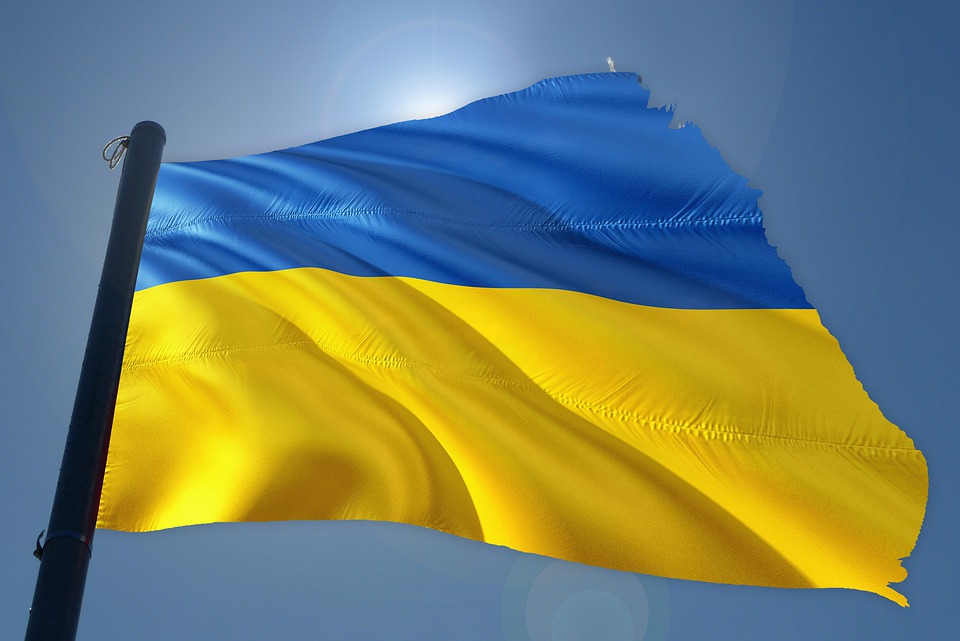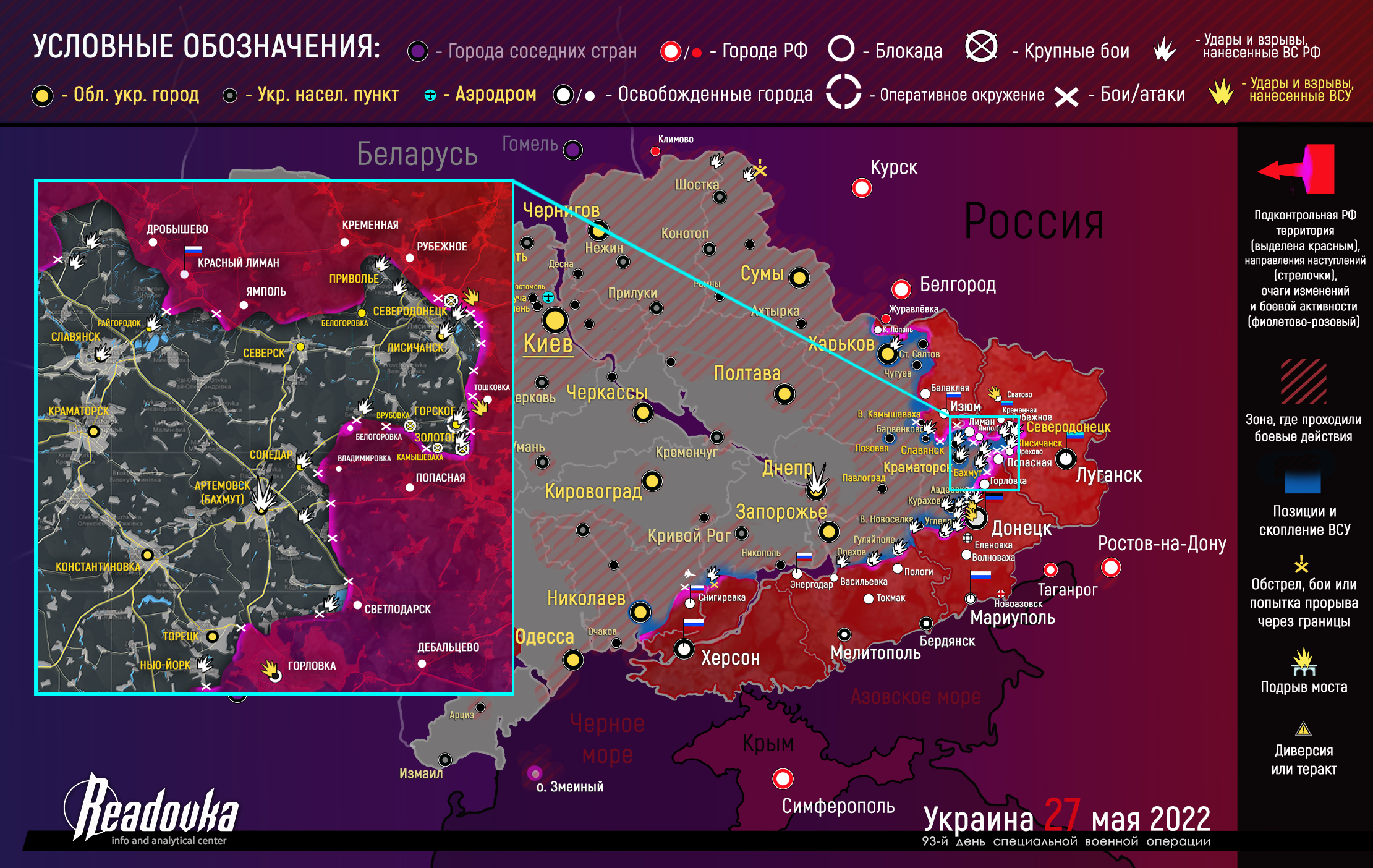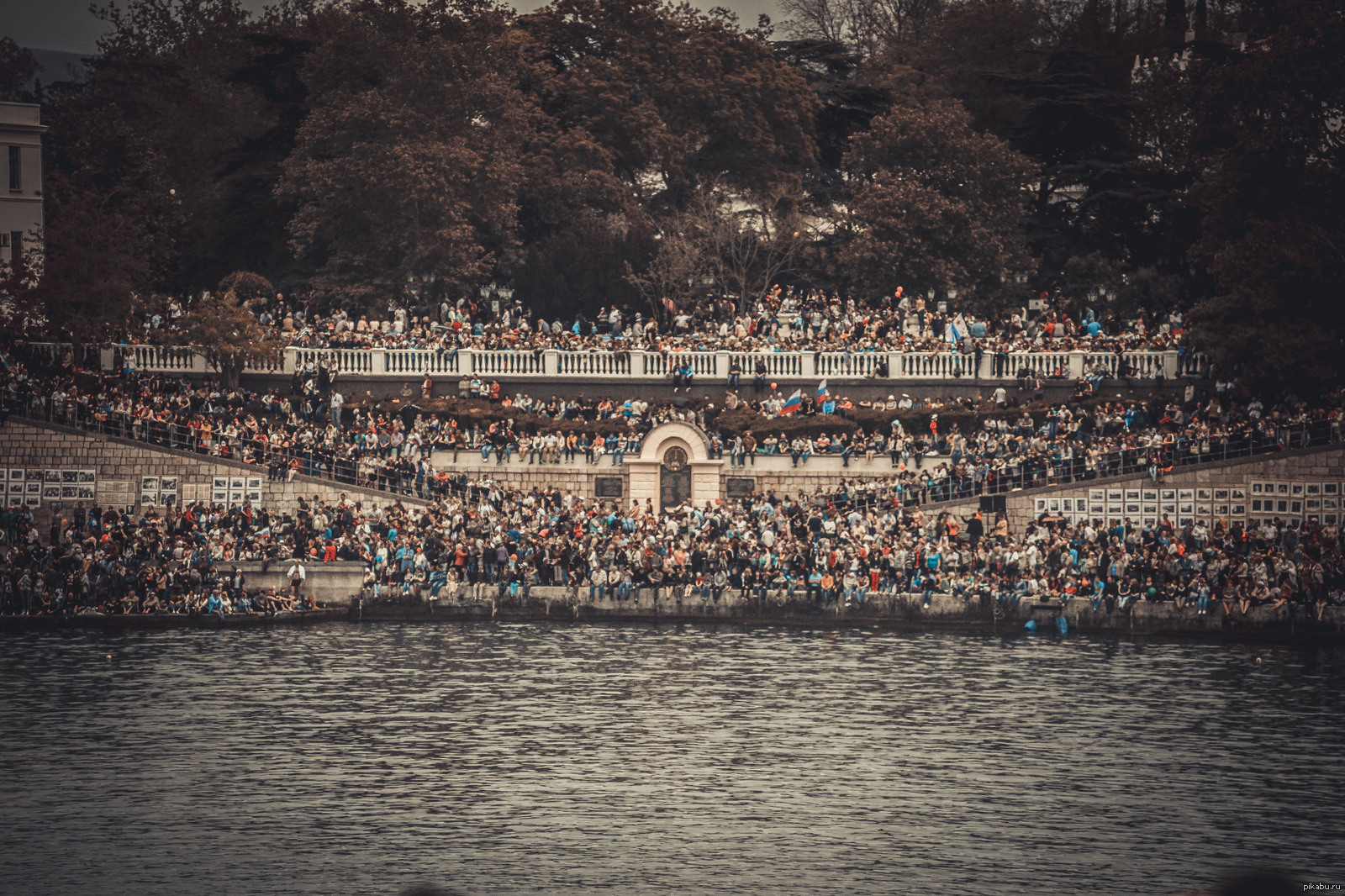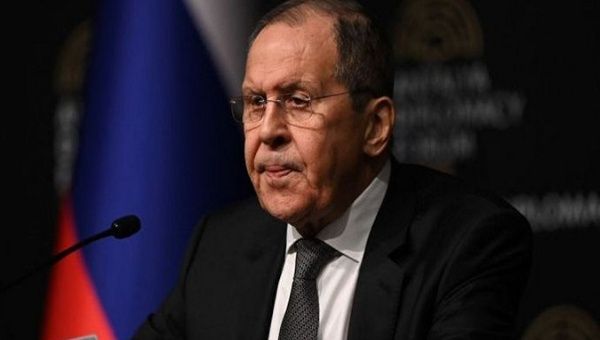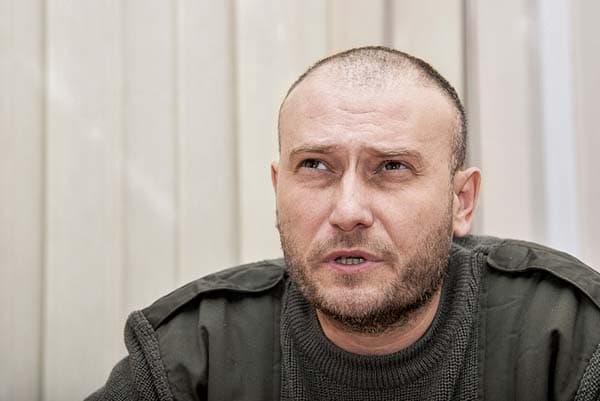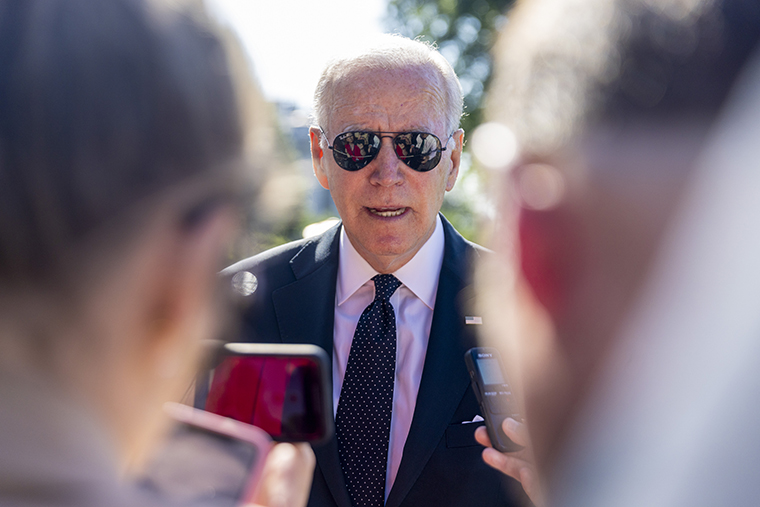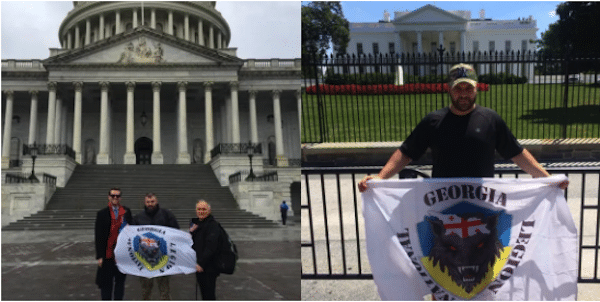
The influence of neofascist and other Nationalist groups in Maidan Ukraine
Originally published: Russian and Eurasian Politics on May 18, 2022 by Gordan M. Hahn (more by Russian and Eurasian Politics) (Posted May 25, 2022)
Russian President Vladimir Putin has made a goal of his war in Ukraine the ‘denazification’ of the country. Kremlin propagandists often refer to the Maidan regime as a ‘Nazi junta’ and fascist regime. These are clearly exaggerations. But there is something more absurd marauding minds in the West. Ukraine neofascist apologists both in Ukraine and elsewhere, such as–astonishingly–the ADL, often downplay Ukrainian neofascism, arguing Ukraine has neofascists ‘like any country’ but their influence is ‘marginal’ and Ukraine’s neofascists are not anti-semitic. Ukraine has a Jewish president after all (www.informationliberation.com/?id=62981). The claim that Ukrainian neofascists have little influence is usually backed up by the neofascist parties’ poor showing in Ukrainian elections. But anti-semitism is not an obligatory characteristic of fascism, and neofascist influence is not measured by the number of seats in a parliament.
Regarding the supposed ‘marginal’ influence of Ukrainian neofascism and ultranationalism, it is never noted that there are so many competing and often mutually antagonistic neofascist groups and parties that their political work and votes are split and so there candidates and parties often fail to win executive branch offices or win seats in legislatures. In addition, neofascist and ultranationalist parties do not devote the bulk of the energies to politicking. They are more interested in intimidation and violence as the means to carry out politics than in persuasion and compromise. Moreover, more ‘mainstream’ nationalist and ultranationalist parties–themselves radical enough and often anti-Semitic–coopt neofascists onto their candidate lists, through which they take seats in Ukraine’s parliament of Rada. Moreover, their lust for power atomizes neofascists and ultranationalists into numerous small groups in Ukraine, making it difficult to repeat the neofascist Svoboda party’s successes of a decade ago.
Neofascists and ultranationalists in Ukraine, as everywhere else, are uninterested in parliamentary politics, debates, compromising and deal-making. They are more interested in the streets and other state institutions, mostly the siloviki. They enter parliament to have a platform, take bribes, and direct budget resources to where their groups might get their hands on them. Theirs is the realm of silencing all who disagree with or oppose them, intimidating marches, and violent riots, beatings, and killings, and ultimately coups–as occurred in February 2014, leading the semi-neofascist Maidan regime to power. On the more mundane level, neofascist demonstrations –sometimes quite violent–have blocked legislation, secured other legislation, and prevented Kiev’s fulfillment of the Minsk 2 accords, contributing to the march towards the present war (gordonhahn.com).
I know of no definition of fascism that stipulates anti-semitism is a necessary component of the ideology. Some sort of racism or ethno-national hatred is an essential part of any list of the components of fascism (along with totalitarian regime type and militarism). Nevertheless, the Ukrainian far right’s racism does target Jews but more episodically than during World War II. Jews are for now a secondary target, and Ukraine’s radical right usually tries to hide its anti-semitic ideas even in cases where they might express admiration for Adolf Hitler and the like. Ukrainian neofascists’, ultranationalists’ and even many ‘moderate’ nationalists’ present targets are Russians particularly but also Romas, Africans, and gays, who are characterized as subhuman by Ukrainian extremism’s adepts.
Indeed, it is arguable that Ukraine is unique as a country with pervasive neofascist and ultranationalist influence, yet mixed in with a hybrid democratic-soft authoritarian regime. The most important elements of everyday neofascism’s influence in Ukraine as a practical matter lie elsewhere than those places focused on by its apologists and defenders.
I know of no other country in the world whose regime was born illegitimately in the blood of its own citizens in a false flag operation carried out by allied neofascist elements in order to spark a revolution and then covered up the massacre’s true origins, organizers, and perpetrators for eight years (Ivan Katchanovski, www.academia.edu; Ivan Katchanovski, papers.ssrn.com; and gordonhahn.com). As one Ukrainian presidential candidate, former Orange regime Defense Minister Anatoliy Hrytsenko, noted: “I propose that one of the reasons that (the snipers massacre) has not been investigated to the end is that someone has feathers on their snout among those who are now in power” (gordonua.com).” Weeks later, another candidate, Volodomyr Zelenskiy commented: “People whom came to power on blood are profiting on blood” (www.pravda.com.ua/news/2019/02/26/7207718/)
I know of no other country in the world which has as its national heroes, figures such as Stepan Bandera and his organizations’ members (Organization of Ukrainian Nationalists and the Ukrainian Partisan Army), who murdered tens of thousands of Jews and Poles in World War II (gordonhahn.com).
I know of no other country in the world that tolerates, indeed supports openly self-avowed neofascist ideological groups with armed units in the country’s armed forces and autonomous armed volunteer battalions and vigilante groups tolerated and even supported by the state (gordonhahn.com; gordonhahn.com; gordonhahn.com; gordonhahn.com; gordonhahn.com; and gordonhahn.com).
I know of no other country in the world where neofascist groups can beat up officials, murder journalists, and raid courtrooms with impunity (see the above links).
I know of not other country in the world where the president awards medals to neofascist who openly acknowledge in Western media that they like killing Russians and routinely violate a ceasefire agreement (gordonhahn.com and gordonhahn.com).
I know of not other country in the world where the president must go to neofascist training camps and convince them to allow the government to fulfill ceasefire and peace agreements (www.kyivpost.com/ukraine-politics/im-no ... ement.html and www.blackstoneintel.com).
I know of no other country in the world where neofascists hold government and police posts and the advisor to the country’s commander of its armed forces is a neofascist (www.mil.gov.ua and gordonhahn.com).
But Ukraine has help in being a unique country. The West rather than discouraging the spread of neofascist ideologies in the country has aided and abetted the trend. One report notes:
In July 2021, a group of journalists flew to Warsaw for media training after being exempted from coronavirus-related restrictions and quarantine orders by Poland’s top medical authorities. Among the six journalists were Andrey Lipsky, deputy editor-in-chief of Novaya Gazeta, and Yuliia Fediv, CEO of Hromadske TV media, one of the most-watched networks in Ukraine. Hromadske’s financial reports show it is funded by numerous governments and foundations, including the U.S. embassy in Ukraine, the Ministry of Foreign Affairs of Denmark, the Swedish International Development Cooperation Agency, the European Endowment for Democracy, and Free Press Unlimited. Silicon Valley billionaire Pierre Omidary was also involved in creating the outlet (www.mintpressnews.com).
Hromadske has hosted a commentator demanding genocide of ethnic Russians in the Donbass, claiming it is populated with 1.5 “superfluous” people that “must be exterminated.” (UkraineHumanRightsAbuses).
At the same time, it is well-known that U.S. and other NATO countries have been training neofascists, including but not limited to the Azov Battalion now incorporated into the Ukrainian armed forces (thegrayzone.com and twitter.com). It appears that the Georgian commander of the pro-Kiev Georgian Legion fighters, Mamuka Mamulashvili was backed and trained by the U.S. military. Mamuashvili has openly acknowledged his forces do not take Russian prisoners and may have participated along with his legion in the now infamous video in which legion and Ukrainian fighters finish off barely alive and severely wounded Russian soldiers.
WARNING! GRUESOME, GRAPHIC IMAGES
It is perhaps indicative that Dmitro Yarosh–the founder of the neofascist organizaton ‘Right Sector’, head of the paramilitary Ukrainian Volunteer Army, and advisor to the chief of staff of the Ukrainian armed forces–attended the NATO summit at Rammstein Air Force Base to plan Ukraine’s response to Russia’s invasion (www.facebook.com).
Not surprisingly then, U.S. government-tied Facebook has supported ties to Ukrainian neofascists (zaborona.com), including allowing Yarosh to maintain a Facebook page.
Disturbingly, the war in Ukraine is likely to fuel even greater neofascism in Ukraine unless its adherents are largely wiped out in the present fighting, which is certainly possible if not likely. Putin’s ‘denazification’ is anything but a fait accompli, and in the trying the Russian invasion and resulting devastation may make matters worse.
At any rate, the next time a radio talk show host, political expert, Democrat Party-state regime, or even a pro-Jewish figure tells you neofascism in pre-war Ukraine is a phantom, not a factor, can be ignored–you shall know you are being lied to.
https://mronline.org/2022/05/25/the-inf ... n-ukraine/
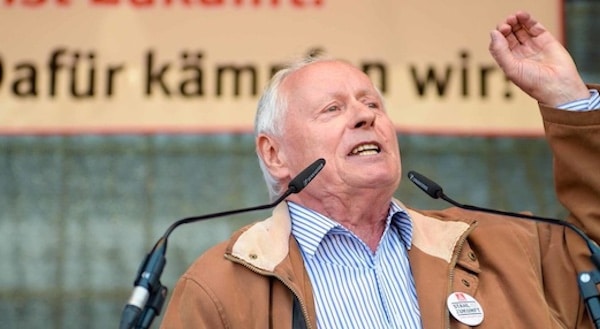
Oskar Lafontaine at a rally of IG Metall in Völklingen, Saarland (11.4.2016)
“The U.S. doesn’t want peace”
Originally published: junge Welt on May 21, 2022 by Jan Greve (more by junge Welt) (Posted May 24, 2022)
Jan Greve: Russia’s war against Ukraine is now taking almost three months. The federal government’s answer to this was: upgrade and deliver weapons. Do you agree with Chancellor Olaf Scholz: Are we currently experiencing a “turn of the century”?
Oskar Lafontaine: No, this is not a turning point–at least with regard to the geopolitical situation. We have long been in a phase in which Russia and China are being militarily encircled by the USA. For 20 years, Moscow has been pointing out that Ukraine must not be admitted to NATO. This means that U.S. missiles may not be placed on the Ukrainian-Russian border. These security interests were consistently ignored. This is one of the decisive reasons for the outbreak of the Ukraine war.
JG: The government in Kiev, as well as those in Warsaw or Budapest, can confidently decide on joining NATO, according to the Western War Alliance. That’s not the case?
OL: The argument that each state can decide for itself which alliance to enters is dishonest. Everyone knows that the U.S. would never accept Cuba’s accession to a military alliance with Russia, nor would the installation of Russian missiles on the U.S. border with Mexico or Canada.
Ultimately, this is not about admission to NATO. The crucial question is: Can missiles be placed at the borders of a nuclear power that have no warning period? This was already a big issue in the peace movement of the 1980s. At that time, it was about the deployment of Pershing II missiles in the FRG, against which we demonstrated. Their flight time to Moscow would have been only about ten minutes. From the Ukrainian-Russian border, the flight time is even shorter.
JG: How do you think the Ukraine war can be ended? In this country, there is louder and louder that there will be no so-called dictation peace of Russia.
OL: To answer this question, we need to understand the conflict. Three phases can be distinguished. The first was NATO’s eastward enlargement. Many important voices in the USA have also strongly warned against this. Even then, it was predicted that such a step would lead to a military conflict with Russia. The second phase began with Vladimir Putin’s decision to invade Ukraine. I condemn this war, just as I condemn without any restriction all other wars contrary to international law. The third phase, of which the German public has not yet noticed, is the beginning war of attrition of Joe Biden. The 40 billion dollars that the U.S. Congress provided last week mainly for arms deliveries to Ukraine are proof that the U.S. does not want peace. They want to weaken their rival Russia and say so openly.
JG: The local debate is also primarily about ever new arms deliveries. For decades, German foreign policy had the principle that no weapons are delivered to crisis areas. Did you think this change of course was possible?
OL: Over the past few decades, I have had to learn that political convictions always do not last. Nevertheless, I was surprised how quickly such a central principle is thrown overboard. Regardless of whether the weapons for Ukraine come from the USA or from the EU, these supplies prolong the war, more and more people will die.
JG: Meanwhile, the supporters of this escalation policy have hijacked the argument for themselves and claim that the war would be prolonged if more and more weapons were not provided. They agree: Russia is to be defeated on the battlefield.
OL: Unfortunately, these people only think in the categories of victory or defeat. But the most important thing, saving lives, obviously does not matter. If you do not want more people to die, you must be against any extension of the war and thus also against every supply of weapons. The argument that this armament would protect Ukraine is implausible. Nobody came up with the idea of supporting the countries invaded by the USA with the supply of German weapons. This shows how deceitful things are with us at the moment.
JG: In addition to arms deliveries, the West reacts with sanctions against Russia. It is emphasized that everything possible below the immediate entry into the war should be done to defeat Russia. Foreign Minister and Green politician Annalena Baerbock spoke of ruining the country. The zeal that shows itself here is unparalleled.
OL: That’s how it is. Especially since the sanctions are increasingly harming people in this country–especially those with low incomes who can no longer pay their energy bills. Due to the stupidity of the Greens, the other politicians of the traffic light coalition, but also the CDU/CSU supporting them, German companies are losing their competitiveness. We shoot ourselves in the knees. The USA is probably laughing at us because it is hardly affected by the sanctions, can now sell its liquefied gas to a greater extent in Europe and its arms industry is doing huge business.
JG: It is not new that the USA is trying to drive a wedge between the FRG and Russia. Is the United States the winner of the current situation?
OL: In the short term, yes. Through NATO’s eastward enlargement and Putin’s ill-considered decision to start the war, the U.S. has achieved its goal of inciting Russia and Germany against each other. In the long term, however, they make a serious mistake by pushing Russia to the side of China. In this way, they will strengthen the country, which is declared to be the main rival of the USA. On the other hand, we have to note that the Germans are not able to act in accordance with their own interests. Instead, you do great harm to yourself in the role of the faithful vassal of the USA.
JG: How would you explain to an inexperienced voter that the federal government is making policy against German interests?
OL: The decisive factor is the entry of the Greens into the government. Since the Yugoslavia war and the role of the then Foreign Minister Joschka Fischer, it has been clear that the Greens are the extended arm of the USA in the Bundestag. They support every U.S. decision when it comes to wars. They call themselves the Human Rights Party, but only know the violation of human rights by Russia or China. The one-eyed Greens do not see that the USA is responsible for most human rights violations as a result of its wars. Incidentally, the press also plays an evil role, which is just as blind to the war crimes of the USA and can be used for the incitement of war.
JG: The federal government, in the person of Minister of Economic Affairs Robert Habeck, also a Green politician, is relatively frankly proclaiming that “all of us” would lose prosperity in the future. More expensive energy or food is the price we would have to pay to stop the war. Who pays for the government’s policy?
OL: Habeck or Baerbock can only act in this way because the Greens have become the party of the better earners. If they still knew about the living conditions of those who have low incomes, they would not talk so stupidly. Ultimately, it is these people who will pay the bill for the “green” price driver. In the longer term, jobs will be lost. The purchase of cheap energy from Russia was a major location advantage for the German economy. It is now being ruined at the instigation of the Greens. And the German economy does not resist enough.
JG: Awareness of the consequences of this policy does not seem to have yet been sufficiently developed among those affected.
OL: In my opinion, a larger part of the population is now aware that with the supply of weapons, the risk of war for Germany is also growing and that prices continue to rise. I hope that the consequences of this wrong policy will be recognized and that there will be protests and countermovements. Unfortunately, many opponents of the war have stayed away from the NRW election. The “green” warmongers have benefited from this.
JG: You mentioned the role of the media in this country. In view of the uniform reporting of the bourgeois press regarding Russia, the question arises how a relevant part of the population should come up with critical thoughts.
OL: It is crucial that people increasingly feel the consequences of this policy in their wallets. In addition, despite the ongoing hate speech of war, more and more people are seeing the dangers associated with it. Last but not least, the Federal Chancellor himself drew attention to the risk of an expanding war up to a nuclear attack.
JG: In addition to arms deliveries, the federal government wants to drastically increase the defense budget and anchor a so-called special fund for the Bundeswehr in the Basic Law. Where will FDP Finance Minister Christian Lindner put the cut to finance the rearmament?
OL: If it will be a matter of reducing the debt in the future, the FDP will primarily think of the social budget. Lindner will represent the interests of his clientele, i.e. the better earners and the economy. Amazing: When it comes to energy prices, the FDP politician acts against the interests of the economy. If he were to recognize the consequences of the current policy for the German economy, he would have to threaten the FDP to withdraw from the coalition.
JG: With regard to the war and impoverishment policy of the “red-green” federal government under Gerhard Schröder, it is not surprising that it is now the SPD, Greens and FDP that set the armament course.
OL: That didn’t surprise me. One must see the changes that have taken place in the traffic light parties. The SPD is no longer Willy Brandt’s party, which promoted peace, disarmament and social improvements. The current Social Democratic Chancellor Scholz advocates rearmament and social dismantling. The Greens, who once had a strong pacifist wing, have become the greatest warmongers in Germany since the Yugoslavia war. And the FDP has no one of the format of the former Foreign Minister Hans-Dietrich Genscher or Guido Westerwelle. Genscher tried everything to prevent a policy that makes nuclear war limited to Europe more likely. And Westerwelle had the courage to show the Americans the cold shoulder in the Libyan war.
JG: SPD co-chairman Lars Klingbeil declared outdated the principle that peace and security in Europe can only be maintained with and not against Russia. How do you look at the development of the party of which you chaired from 1995 to 1999?
OL: Anyone who these days thinks that the idea that peace in Europe can only exist with Russia is wrong, must be examined for his state of mind. The policy of détente has led to peace in Europe, including for the Eastern European states. On the other hand, the policy of confrontation, which began after the fall of the Wall and which was carried out by the USA, led first to the Yugoslavia war and now to the Ukraine war. Basically, it should not be difficult to understand that relaxation, i.e. the attempt to communicate, leads to peace and confrontation eventually leads to war. However, we live in times of great spiritual confusion.
JG: Under the title “Living without NATO – Ideas for Peace” a congress will take place in Berlin this Saturday, where you will talk about the Ukraine war as a speaker. You have outlined the challenges for the German peace movement. Does it live up to those in its current constitution?
OL: No. But many are concerned that the war will spread. Therefore, it would now be necessary to take to the streets again in large numbers in the tradition of the peace movement of the 80s or the demonstrations before the Iraq war.
JG: The tasks described should also be of central importance for the Left Party. In March, you declared your withdrawal from the party you once co-founded. Do you have to understand this step in such a way that you no longer see your peace policy positions represented there?
OL: No longer to a sufficient extent. There have always been attempts to become “capable of governing” as a party. Some want to change the program so that they support wars mandated by the UN and to decide the issue of arms deliveries on a case-by-case basis. For many years, these attempts went nowhere. When Scholz then announced the “turn of the century” in his Bundestag speech, there was a push by deputies in the parliamentary group to approve the former group chairman Gregor Gysi and the then party leader Susanne Hennig-Wellsow to the armament motion. Thank God, those who pleaded for the rejection of this motion prevailed at the last moment. However, the discussion in the party afterwards shows that further attempts are being made to put the left on a similar course as the SPD and the Greens. If the course is really set at the party congress at the end of June, then the party has settled.
JG: They do not seem to assume that the left-wing forces within the party can still turn the tide.
OL: There is still a chance. But for this it must be understood that it is about how voters assess the policy of the Left Party – not which group a majority organizes at the party congress. It is not only in the party The Left that there is great mistake to believe that it is democracy if you find a majority in internal disputes. In democracy, however, the majority must be found among the population, not at party congresses.
JG: Without the broad protests against the “Agenda 2010” policy, the first successful years of the party The Left would not have been possible. This was a special historical starting point. The current circumstances give rise to doubt that a new left-wing party could soon be elected to the Bundestag.
OL: Where left-wing politics is successful, the correct program is represented. When we primarily campaigned for the interests of employees–without losing sight of climate protection – we were successful. Ever since that policy was changed a few years ago, we’ve been losing the elections. The conclusions to be drawn from this are obvious. It is almost ridiculous to assume that there is no potential for a party that puts peacekeeping and social concerns first. Especially when you see the extent to which the socially disadvantaged are now being impoverished by the federal government’s foolish policies. A left-wing party that represents the real interests of the majority of the population would now have more support than the Greens.
https://mronline.org/2022/05/24/the-u-s ... ant-peace/
*****************************
Russell “Texas” Bentley: Azovstal Surrender Prompted Shift in Western Public View of Russia’s Ukraine Op
Posted by INTERNATIONALIST 360° on MAY 24, 2022
Ekaterina Blinova

The Azovstal operation sent a powerful message to Kiev and its US backers, presenting a glaring contrast between Ukrainian nationalists’ mistreatment of Russia and DPR POWs and Moscow’s humane approach to those who laid down arms, according to Russell “Texas” Bentley, a US-born Donbass volunteer and war correspondent.

Russell Bentley, a volunteer fighter and blogger from the US in Donetsk People's Republic - Sputnik International, 1920, 24.05.2022Russell Bentley, a volunteer fighter and blogger from the US in Donetsk People’s Republic
Sputnik: What message does the surrender of Azovstal send to Kiev in your opinion? How could it influence the Ukrainian military’s morale and their willingness to fight?
Russell Bentley: Сlearly, it’s a huge military victory for the Russian and Donbass forces. Kiev knows it. The United States knows it, and the soldiers of the Ukrainian army know it. The Azov Nazis that were hiding in the Azovstal basements were the most supposedly highly-trained, best-equipped, most close to Ukrainian and US military leadership. And they got smashed. They proved themselves to be cowards as they ordered others to fight to the last bullet and the last man. They themselves surrendered while they still had food, they still had weapons, they still had ammo. They used human shields. When they came out, they were still clean and fat and healthy.
And we compare that with Ukrainian army units that have surrendered because they really were out of ammo. They hadn’t had food or water for days. So really it shows – and also it’s very important that since these Nazis have been captured alive, they’ve been videoed. And it’s being very widely spread.
Not only so many of them have swastikas and pictures of Hitler tattooed to their bodies, but also genuinely Satanic symbols. And this hopefully will be able to be communicated to the people of the West who are decent Christians so that they can understand. And even if they’re not Christians or at least decent human beings to understand that this really is a battle between good and evil, and it’s the evil of the West using Nazi proxies to attack the good people here.
So it’s been a huge victory in every measurement. It has undermined morale in the Ukrainian army. There are now other army units that want to surrender. It has proven who the good guys and who the bad guys are. And it has been a major strategic and tactical victory for Russia and the DPR forces.

Russian soldiers walk inside the Ukraine’s Azov Regiment base adorned with the unit’s emblems in Yuriivka resort settlement on the coast of Azov Sea not far from Mariupol, in territory under the government of the Donetsk People’s Republic, eastern Ukraine, Wednesday, May 18, 2022
Sputnik: Could the surrender of Azovstal cool off the enthusiasm of Western warmongering elites in your opinion?
Russell Bentley: Actually, in that respect, I don’t think so, because the people that own and control the United States government, which has nothing to do with the citizens of the United States, they were never interested. They never cared at all about winning this war, their intention and their strategy the whole time since 2014, when they started this war, was to create a Ukrainian failed state, to create another Afghanistan for Russia, and to increase the death and destruction and prolong the conflict there has been their intent the whole time.
So, just because the Ukrainians are losing, that’s no reason for them not to pour billions more US taxpayer dollars into Ukraine to flood the country with weapons, to increase the destruction and also to the detriment of the citizens of the United States. So, the people that own and control the US, EU and NATO are going to continue this war, and it is going to require that Russia and Donbass forces completely defeat the Ukrainian army militarily in order to stop the war.
Sputnik: What do you think about the Kremlin’s decision not to launch an all-out offensive of Azovstal which could have led to thousands of casualties?
Russell Bentley: It was a brilliant decision. I’m very proud to see that it was Vladimir Putin himself who made it. He has proved himself to be a military genius, and it’s very encouraging to know that someone with that depth of knowledge and skills is the leader of our country. By not attacking and not making an all-out offensive on the Azovstal plant, first consideration, we saved the lives of many of our own soldiers.
The battalion that I served in, back in 2015, Vostok Battalion, they are the main guys that were surrounding the Azovstal base. So Putin’s decision not to make that assault saved the lives of some of my very good friends, and I’m very happy about that, from a personal perspective. It also saved our ammunition. We were able to capture prisoners that have some very important intelligence information that we will be extracting from them. It’s also will give us more proof that our enemies are genuine Nazis and Satanists and more evidence of their atrocities as they begin to squeal on each other and testify against each other in order to try and get leniency for their own sentences.
And it again shows Russia as a humane and merciful warrior. We don’t say like the United States, oh, we’re just going to go in and kill everybody or we’re going to flatten the whole city. We have proven our humanity by multiple times. But this act, again, proves it and it shows that this is a major moral and military and PR political victory. And at the same time, it proves that Russia can have mercy and still win, which is exactly what we’re doing.
Sputnik: Are there any signs of a shift in the Western public’s view of the Russian special operation after Ukrainian fighters’ surrender at Azovstal and reports emerged of torture and killings of Russian POWs by Ukrainian nationalists?
Russell Bentley: Yes, there are signs of a shift in the Western public’s view. You understand that, in my opinion, in the United States, more than 95%, 97%, 98% of American citizens are like zombies now. They’re brainwashed. They have no critical thinking skills. They’re politically and historically illiterate. They don’t know, they can’t even remember, before the year 2000, much less, you know, 1939 or 1945. They have no context with which to judge current events and political developments in the world. So their opinion is going to be whatever, they’re told to think by the television and by the complete propaganda of the western mass media.
But there are 2-3% of Americans who are educated, who do understand what’s going on. And even though it’s a very small percentage, it’s still eight or ten or 12 million people in the United States that are not only smart enough to understand, but perhaps moral and competent enough to actually do something about it. And those are the people like you and I and Sputnik News that are giving the Russian or humane perspective to the West in the English language. Those are the people that we have to reach, that eight or 10 million people in America that are intelligent enough to understand what we’re saying.
So there is a shift. Those people – you can’t argue when you see a guy with a swastika tattoo on his arm that’s wounded and being taken care of with excellent care, by Donetsk People’s Republic (DPR) doctors, by the people that this guy swore that he would massacre if he ever had the chance.
When you see the videos of the Azov atrocities, of them cutting prisoners of wars’ throats or shooting them in the legs and letting them bleed to death or carving and branding swastikas into their bodies, you can’t argue with that. It’s not Russian propaganda. It’s not fake. It’s the real deal. That’s what’s really going on. And these people, when they see this… some people just refuse to believe. There are people in the United States that I’ve spoken to about important matters and they literally say:
“I don’t want to know.” And those people they’ve given up on their humanity, on their responsibility as human beings, as moral human beings, at any rate. They’ve become like livestock. It’s like you tell a sheep – hey, if you go in that slaughterhouse door right there, they’re going to chop you up. And they’re like: “Well, they’re feeding me. They’ve been nice to me so far, so I don’t care. I don’t want to know.”
So yes, there has been a shift in a small amount of people, but it’s absolutely important that we keep hammering the truth into them. And that’s exactly our job.
https://libya360.wordpress.com/2022/05/ ... kraine-op/
Damn Russell, Putin is a savvy politician but he ain't no military genius. And he betrayed the Soviet Union...
The World is Facing Food Shortages and Inflation to Preserve the Throne of the U.S.
Posted by INTERNATIONALIST 360° on MAY 24, 2022
Elijah J. Magnier

Russia has suspended its gas supply to Finland after its refusal to pay in Rubles, in contrast to more than half of the 54 countries that have started paying for their gas supply with Russian currencies, most of them on the European continent, plus Japan, all allies of the US. This will raise energy and food prices across the continent, which has started to affect countries around the world due to the Western sanctions imposed on Moscow, which have generated the boomerang effect, hitting the West, especially Europe. The US claims that the increase in food and energy prices is due to the war waged by Russia against Ukraine, while the US sanctions against Russians and their means of transportation and receipt of payments indicate the opposite.
Russia – not Ukraine – is considered the world’s main source of wheat, accounting for about 24% of the world population’s needs and consumption. Canada (12.44%) is in second place, the US (12.24%) in third, France (10.30%) in fourth, and Ukraine (8.9%) in fifth.
The world is not dependent on Ukrainian wheat. The Ukrainian war adds to an already existing problem where many countries will not be able to meet their food supply, even if Ukraine recovers its exports.
Ukrainian wheat production occurs throughout the territory of that country. Although bulk production is in the east, which is exposed to a Russian military operation, the logistical supply line has suffered from the transport of NATO weapons on the railroads that Russia has targeted. These logistical supply routes will require reconstruction when the war stops. Ukraine is bypassing the sea blockade and has agreed with Lithuania, Latvia and Poland to export its wheat and sell it at a high price due to rising prices around the world. Russia says there are 75 ships from 17 countries anchored in the port of Odesa carrying the export cargoes of wheat. Meanwhile, the Ukrainian army has laid mines in the Black Sea, making navigation dangerous and impossible.
As for the most significant cause of the wheat crisis, the US announced sanctions on Russian energy supplies, raising the price of transportation and penalizing seven Russian shipping companies and 69 other ships. All were listed as prohibited property, including the state-owned “Sovcom Float,” Russia’s largest shipping company, and “United Shipbuilding,” the largest and most developed and widespread shipbuilder.
These Western sanctions directly affect prices for 2022-2023 for all transported goods, including crops, especially since there are no indications of the possibility of lifting these sanctions on Russia, even if military operations in Ukraine have ended.
Ukraine’s wheat and corn supplies are not dependent on survival or the end of the war. In fact, 70% of the diesel fuel and fertilizer (Russia is the largest exporter of fertilizer) that farmers need comes from Russia. Moreover, the labor that Ukraine needs will either be involved in the war – if it continues for any length of time – or in rebuilding the country. Ukrainian emigrants have exceeded five million people (expected to reach eight million) since the start of the war on February 24 this year. The European continent has opened its doors to Ukrainians, who will find better opportunities on the rich continent.
Global markets are bracing for a shortage in wheat and corn deliveries starting in August and September, representing a shortfall of at least 20 million tons. According to additional US and European sanctions against Russia and its means of transportation, these numbers could increase. Other factors related to climate change affect some countries, especially India.
In fact, what worsened the food security and wheat supply chain was the decision by India – eighth among wheat exporting countries with 4.1% of global exports – to stop wheat exports. Forty-seven countries had submitted a request to India to import its wheat this year. This led India to issue a decision on May 13 to ban all wheat exports with immediate effect.
The decision came amid a crop loss due to record heat waves in Punjab, Haryana, Uttar Pradesh, and Madhya Pradesh, rendering the crop unfit for human consumption, reducing production from 113.5 million tons to 105 million tons.
The US and Europe criticized India’s decision: EU trade chief Valdis Dombrovskis said “these export restrictive measures could exacerbate the wheat problem.” India responded that “blaming developing countries like India will not solve the global food crisis.”
The price of wheat was around $210 a ton, but today it reached almost $453 on European markets. The countries that import wheat from India will be the first to be affected by New Delhi’s decision. They are Bangladesh (which imports 55.9% of its wheat requirements from India), Sri Lanka (7%), UAE (6.9%), Indonesia (5.9%), Yemen (5.3%), and the Philippines (5.1%). However, Nepal, Korea, Qatar, Oman, and Malaysia are also expected to be the main affected. Kenya, Ethiopia, and Somalia have reached 20 million people below the poverty level and are unable to buy what they need at the current market price without international support.
Sudan, Algeria and many African countries have enough water and fertile land that can be exploited to cover the world’s deficit if they are financially supported and allowed to produce food for the world. This requires the planet to sustain and invest in financing food production. US President Joe Biden just signed a $40 billion support for the war to continue in Ukraine to weaken (not defeat) Russia: while $29.39 billion could increase the income of 5.64 billion people to just $10 a day (80% of the world’s population lives on $2.5 a day) and would be enough to end the world food crisis and support many farmers in several nations for decades.
It seems that the US has not thought through all aspects of the sanctions it has imposed on Russia and dragged Europe and the rest of the Western countries – which make up 15% of the world – behind it. The Western arrows launched against Russia hit, first of all, the European population and the poorest peoples of the world.
Blinded by its hatred of Russia and to defend its world throne, the U.S. did not bother to find an alternative or exempt from sanctions some goods or companies carrying food or oil and gas. After weakening Russia and maintaining its hegemony over the world, the US goal is to separate Russia from Europe at all costs, regardless of the suffering imposed on the people.
Several European countries are still dependent on Russian oil, gas and wheat without the US being able to impose a complete embargo on Russia. Moscow still receives tens of billions of dollars (in rubles) monthly from Western countries indirectly funding the war against Ukraine. However, there is a significant challenge for Western governments not to be exposed to domestic turmoil in the coming months, when EU countries will be forced to adjust to higher prices (even more than the current strong inflation) on oil, gas, and food, the price of which has indeed risen alarmingly.
European governments are predicting a “disaster” or “tsunami” that will hit the population like a whirlwind time bomb in the coming months. It is hitting many nations around the world. The United Nations World Food Programme warns that more than 52 million people worldwide are falling under the risk of starvation. However, none of these European leaders seem to be aware of how to address this crisis or have the courage to stand up to the dictates of the US, which is the root of the overall European suicidal decisions related to sanctioning Russia. The American sword is hanging over the necks of everyone in the West. What the US is demanding from Europe is to antagonize Russia and stop all avenues of trade cooperation. European officials must adapt to this unpopular and counterproductive decision. This is a situation they just have to accept: they themselves will pay a high price for what they helped create.
https://libya360.wordpress.com/2022/05/ ... f-the-u-s/
NATO vs Russia: What Happens Next
Posted by INTERNATIONALIST 360° on MAY 24, 2022
Pepe Escobar

In Davos and beyond, NATO’s upbeat narrative plays like a broken record, while on the ground, Russia is stacking up wins that could sink the Atlantic order.
Three months after the start of Russia’s Operation Z in Ukraine, the battle of The West (12 percent) against The Rest (88 percent) keeps metastasizing. Yet the narrative – oddly – remains the same.
On Monday, from Davos, World Economic Forum Executive Chairman Klaus Schwab introduced Ukrainian comedian-cum-President Volodymyr Zelensky, on the latest leg of his weapons-solicitation-tour, with a glowing tribute. Herr Schwab stressed that an actor impersonating a president defending neo-Nazis is supported by “all of Europe and the international order.”
He means, of course, everyone except the 88 percent of the planet that subscribes to the Rule of Law – instead of the faux construct the west calls a ‘rules-based international order.’
Back in the real world, Russia, slowly but surely has been rewriting the Art of Hybrid War. Yet within the carnival of NATO psyops, aggressive cognitive infiltration, and stunning media sycophancy, much is being made of the new $40 billion US ‘aid’ package to Ukraine, deemed capable of becoming a game-changer in the war.
This ‘game-changing’ narrative comes courtesy of the same people who burned though trillions of dollars to secure Afghanistan and Iraq. And we saw how that went down.
Ukraine is the Holy Grail of international corruption. That $40 billion can be a game-changer for only two classes of people: First, the US military-industrial complex, and second, a bunch of Ukrainian oligarchs and neo-connish NGOs, that will corner the black market for weapons and humanitarian aid, and then launder the profits in the Cayman Islands.
A quick breakdown of the $40 billion reveals $8.7 billion will go to replenish the US weapons stockpile (thus not going to Ukraine at all); $3.9 billion for USEUCOM (the ‘office’ that dictates military tactics to Kiev); $5 billion for a fuzzy, unspecified “global food supply chain”; $6 billion for actual weapons and “training” to Ukraine; $9 billion in “economic assistance” (which will disappear into selected pockets); and $0.9 billion for refugees.
US risk agencies have downgraded Kiev to the dumpster of non-reimbursing-loan entities, so large American investment funds are ditching Ukraine, leaving the European Union (EU) and its member-states as the country’s only option.
Few of those countries, apart from Russophobic entities such as Poland, can justify to their own populations sending huge sums of direct aid to a failed state. So it will fall to the Brussels-based EU machine to do just enough to maintain Ukraine in an economic coma – independent from any input from member-states and institutions.
These EU ‘loans’ – mostly in the form of weapons shipments – can always be reimbursed by Kiev’s wheat exports. This is already happening on a small scale via the port of Constanta in Romania, where Ukrainian wheat arrives in barges over the Danube and is loaded into dozens of cargo ships everyday. Or, via convoys of trucks rolling with the weapons-for-wheat racket. However, Ukrainian wheat will keep feeding the wealthy west, not impoverished Ukrainians.
Moreover, expect NATO this summer to come up with another monster psyop to defend its divine (not legal) right to enter the Black Sea with warships to escort Ukrainian vessels transporting wheat. Pro-NATO media will spin it as the west being ‘saved’ from the global food crisis – which happens to be directly caused by serial, hysterical packages of western sanctions.
Poland goes for soft annexation
NATO is indeed massively ramping up its ‘support’ to Ukraine via the western border with Poland. That’s in synch with Washington’s two overarching targets: First, a ‘long war,’ insurgency-style, just like Afghanistan in the 1980s, with jihadis replaced by mercenaries and neo-Nazis. Second, the sanctions instrumentalized to “weaken” Russia, militarily and economically.
Other targets remain unchanged, but are subordinate to the Top Two: make sure that the Democrats are re-elected in the mid-terms (that’s not going to happen); irrigate the industrial-military complex with funds that are recycled back as kickbacks (already happening); and keep the hegemony of the US dollar by all means (tricky: the multipolar world is getting its act together).
A key target being met with astonishing ease is the destruction of the German – and consequently the EU’s – economy, with a great deal of the surviving companies to be eventually sold off to American interests.
Take, for instance, BMW board member Milan Nedeljkovic telling Reuters that “our industry accounts for about 37 percent of natural gas consumption in Germany” which will sink without Russian gas supplies.
Washington’s plan is to keep the new ‘long war’ going at a not-too-incandescent level – think Syria during the 2010s – fueled by rows of mercenaries, and featuring periodic NATO escalations by anyone from Poland and the Baltic midgets to Germany.
Last week, that pitiful Eurocrat posing as High Representative of the EU for Foreign Affairs and Security Policy, Josep Borrell, gave away the game when previewing the upcoming meeting of the EU Foreign Affairs Council.
Borrell admitted that “the conflict will be long” and “the priority of the EU member states” in Ukraine “consists in the supply of heavy weapons.”
Then Polish President Andrzej Duda met with Zelensky in Kiev. The slew of agreements the two signed indicate that Warsaw intends to profit handsomely from the war to enhance its politico-military, economic, and cultural influence in western Ukraine. Polish nationals will be allowed to be elected to Ukrainian government bodies and even aim to become constitutional judges.
In practice, that means Kiev is all but transferring management of the Ukrainian failed state to Poland. Warsaw won’t even have to send troops. Call it a soft annexation.
The steamroller on the move
As it stands, the situation on the battlefield can be examined in this map. Intercepted communications from the Ukrainian command reveal their aim to build a layered defense from Poltava through Dnepropetrovsk, Zaporozhia, Krivoy Rog, and Nikolaev – which happens to be a shield for the already fortified Odessa. None of that guarantees success against the incoming Russian onslaught.
It’s always important to remember that Operation Z started on February 24 with around 150,000 or so fighters – and definitely not Russia’s elite forces. And yet they liberated Mariupol and destroyed the elite neo-Nazi Azov batallion in a matter of only fifty days, cleaning up a city of 400,000 people with minimal casualties.
While fighting a real war on the ground – not those indiscriminate US bombings from the air – in a huge country against a large army, facing multiple technical, financial and logistical challenges, the Russians also managed to liberate Kherson, Zaporizhia and virtually the whole area of the ‘baby twins,’ the popular republics of Donetsk and Luhansk.
Russia’s ground forces commander, General Aleksandr Dvornikov, has turbo-charged missile, artillery and air strikes to a pace five times faster than during the first phase of Operation Z, while the Ukrainians, overall, are low or very low on fuel, ammo for artillery, trained specialists, drones, and radars.
What American armchair and TV generals simply cannot comprehend is that in Russia’s view of this war – which military expert Andrei Martyanov defines as a “combined arms and police operation” – the two top targets are the destruction of all military assets of the enemy while preserving the life of its own soldiers.
So while losing tanks is not a big deal for Moscow, losing lives is. And that accounts for those massive Russian bombings; each military target must be conclusively destroyed. Precision strikes are crucial.
There is a raging debate among Russian military experts on why the Ministry of Defense does not go for a fast strategic victory. They could have reduced Ukraine to rubble – American style – in no time. That’s not going to happen. The Russians prefer to advance slowly and surely, in a sort of steamroller pattern. They only advance after sappers have fully surveilled the terrain; after all there are mines everywhere.
The overall pattern is unmistakable, whatever the NATO spin barrage. Ukrainian losses are becoming exponential – as many as 1,500 killed or wounded each day, everyday. If there are 50,000 Ukrainians in the several Donbass cauldrons, they will be gone by the end of June.
Ukraine must have lost as many as 20,000 soldiers in and around Mariupol alone. That’s a massive military defeat, largely surpassing Debaltsevo in 2015 and previously Ilovaisk in 2014. The losses near Izyum may be even higher than in Mariupol. And now come the losses in the Severodonetsk corner.
We’re talking here about the best Ukrainian forces. It doesn’t even matter that only 70 percent of Western weapons sent by NATO ever make it to the battlefield: the major problem is that the best soldiers are going…going…gone, and won’t be replaced. Azov neo-Nazis, the 24th Brigade, the 36th Brigade, various Air Assault brigades – they all suffered losses of 60+ percent or have been completely demolished.
So the key question, as several Russian military experts have stressed, is not when Kiev will ‘lose’ as a point of no return; it is how many soldiers Moscow is prepared to lose to get to this point.
The entire Ukrainian defense is based on artillery. So the key battles ahead involve long-range artillery. There will be problems, because the US is about to deliver M270 MLRS systems with precision-guided ammunition, capable of hitting targets at a distance of up to 70 kilometers or more.
Russia, though, has a counterpunch: the Hermes Small Operational-Tactical Complex, using high precision munitions, possibility of laser guidance, and a range of more than 100 kilometers. And they can work in conjunction with the already mass-produced Pantsir air defense systems.
The sinking ship
Ukraine, within its current borders, is already a thing of the past. Georgy Muradov, permanent representative of Crimea to the President of Russia and Deputy Prime Minister of the Crimean government, is adamant: “Ukraine in the form in which it was, I think, will no longer remain. This is already the former Ukraine.”
The Sea of Azov has now become a “sea of joint use” by Russia and the Donetsk People’s Republic (DPR), as confirmed by Muradov.
Mariupol will be restored. Russia has had plenty of experience in this business in both Grozny and Crimea. The Russia-Crimea land corridor is on. Four hospitals among five in Mariupol have already reopened and public transportation is back, as well as three gas stations.
The imminent loss of Severodonetsk and Lysichansk will ring serious alarm bells in Washington and Brussels, because that will represent the beginning of the end of the current regime in Kiev. And that, for all practical purposes – and beyond all the lofty rhetoric of “the west stands with you” – means heavy players won’t be exactly encouraged to bet on a sinking ship.
On the sanctions front, Moscow knows exactly what to expect, as detailed by Minister of Economic Development Maxim Reshetnikov: “Russia proceeds from the fact that sanctions against it are a rather long-term trend, and from the fact that the pivot to Asia, the acceleration of reorientation to eastern markets, to Asian markets is a strategic direction for Russia. We will make every effort to integrate into value chains precisely together with Asian countries, together with Arab countries, together with South America.”
On efforts to “intimidate Russia,” players would be wise to listen to the hypersonic sound of 50 Sarmat state-of-the-art missiles ready for combat this autumn, as explained by Roscosmos head Dmitry Rogozin.
This week’s meetings in Davos brings to light another alignment forming in the world’s overarching unipolar vs. multipolar battle. Russia, the baby twins, Chechnya and allies such as Belarus are now pitted against ‘Davos leaders’ – in other words, the combined western elite, with a few exceptions like Hungary’s Prime Minister Viktor Orban.
Zelensky will be fine. He’s protected by British and American special forces. The family is reportedly living in an $8 million mansion in Israel. He owns a $34 million villa in Miami Beach, and another in Tuscany. Average Ukrainians were lied to, robbed, and in many cases, murdered, by the Kiev gang he presides over – oligarchs, security service (SBU) fanatics, neo-Nazis. And those Ukrainians that remain (10 million have already fled) will continue to be treated as expendable.
Meanwhile, Russian President Vladimir “the new Hitler” Putin is in absolutely no hurry to end this larger than life drama that is ruining and rotting the already decaying west to its core. Why should he? He tried everything, since 2007, on the “why can’t we get along” front. Putin was totally rejected. So now it’s time to sit back, relax, and watch the Decline of the West.
https://libya360.wordpress.com/2022/05/ ... pens-next/




